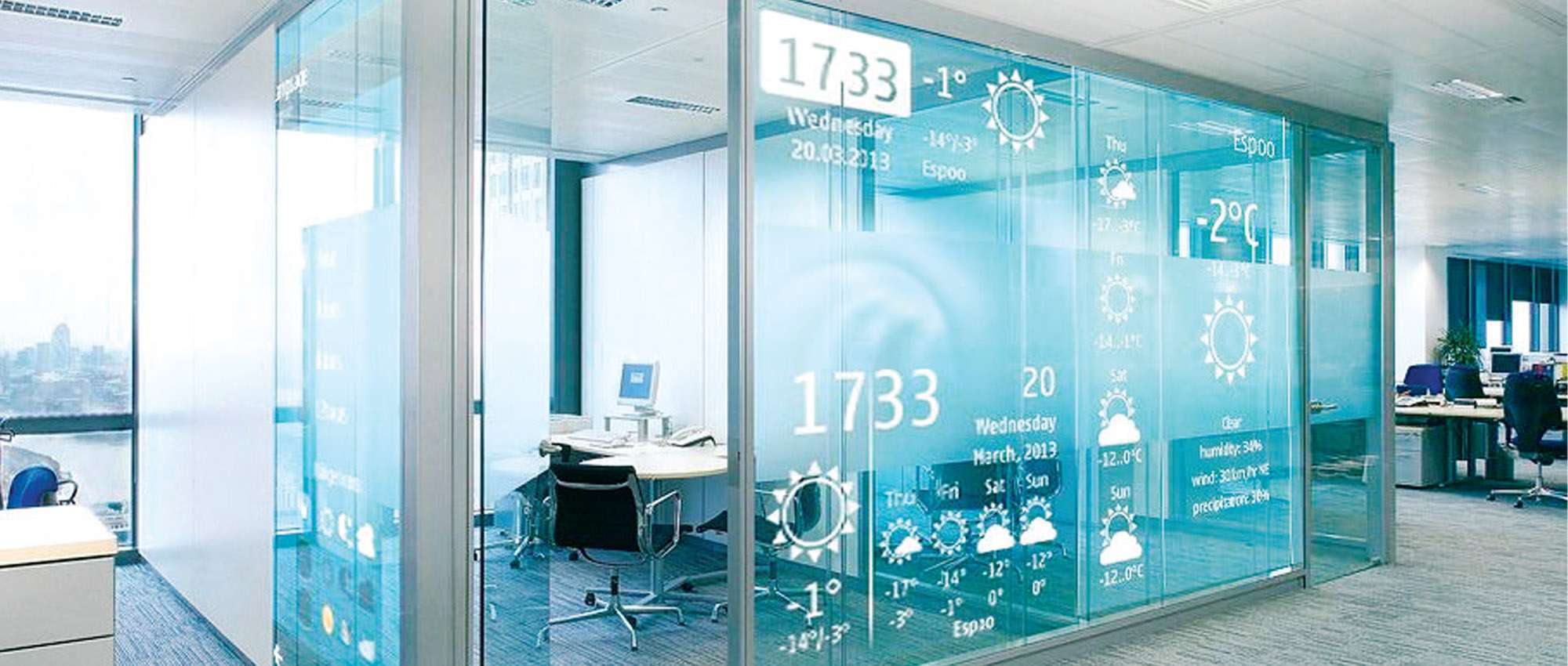Industry Hit Hard But Can Emerge Stronger With Proper Planning & Effective Implementation
The coronavirus pandemic has affected almost every country on the planet and turned out to be a global health crisis. As the situation doesn’t seem to be improving, every section of the society is now looking to accept a new reality.

The business world is no exception. With countries enforcing lockdowns to curb the spread of the virus, global economy has taken a major blow. But thankfully, technology has turned out to be a great saviour for many industries. The announcements of health regulators to maintain social distancing made customers stay in. On the other hand, it has presented an opportunity for entrepreneurs and business owners to give it back to society in the most critical of times. Global health crisis deals a deathly blow The impact of the COVID-19 pandemic on Indian economy has been largely disruptive and has hampered the already ailing industry to the core. It has led to an alarming rise in unemployment. During the lockdown, an estimated 14 crore people lost their jobs. More than 45 per cent of households across the nation reported a substantial income drop. The industry in general had a major blow and many big business houses and multinationals have temporarily suspended or significantly reduced operations. Start-ups have been impacted as funding has fallen. Fast-moving consumer goods manufacturing companies in the country have significantly reduced operations and are focusing on essentials. The glass processing industry too took a hit. Excepting a few units, the glass processing industry was largely locked down. The recent announcement of numerous sops to the units in MSME sector might help the industry boost production and profitability as most of the glass processing units fall under this category. However, whether these would help remains to be seen. Labour crisis looms large A big crisis the industry is going to face once operations resume is of labour. When the lockdown was announced and businesses shut, labourers, mostly migrants, started leaving and heading home. With restricted travel options, these people left the cities for their native places in whatever they could manage as they had lost their jobs and could no longer afford the expenses of living in cities. Now, it remains uncertain when these people would migrate back and also if they would be willing to anymore, considering the hardships they had to face. This poses a huge problem for industries. Very few companies have been able to retain their labour force. Operations halted but expenses mount The lockdown has pushed the economy into a halt. There is a shortage of cash flow and liquidity in the market. Businesses have stopped investing and are looking to secure whatever they have as the crisis extracts a heavy toll. Electricity bills continue to be a major expense. Often there are fixed charges that have to be paid and these are never nominal. So, with production halted and salaries to paid, power bills prove to be additional burdens. Governments must look to extend some rebate in this respect, otherwise many firms risk going bankrupt or have to start lay-offs. Adjusting to a new reality As the industry gets back on its feet with the lockdown slowly lifting and restrictions eased, it has to adjust to the new post-COVID existence. With social distancing poised to be part of our lives for the foreseeable future, factories will have to learn to function with a leaner labour force. And this brings in the prospect of automation. With migrant workers heading home and restrictions imposed on travel, an acute labour crisis is in the making. And in such a situation, businesses will have to depend on automation and technology to get the job done. This is the time to rethink, reinvent and recreate in order to survive. Automation & digitalisation offer a path ahead Also, with restrictions on travel and the risks involved because of the contagion, meetings and conferences will have to move online. The economic cost of the lockdown has led to budget constraints which, in turn, will lead to further reduction in expenditures. Hence, the focus again on digital meetings. Conferences, seminars, marketing are slowly moving to the digital space, which is also cost-effective. Cutting down on travel with help in significant reduction of costs for companies. But life has to go on. As businesses resume operations, stringent safety measures will have to be adopted. The government has already issued guidelines to follow once the restrictions are lifted. With the new restrictions that we have to imbibe in our daily lives, modes of business will also have to change. E-commerce and doorstep service will find new takers as more and more people will prefer to avoid venturing out. Online consultancy, sale and special offers like discounts or free delivery can help companies get back to business. Safety measures to be adhered to Thermal scanning will have to be mandated. Sanitisation and basic hygiene will be the key to prevent the disease from spreading. Along with these, social distancing will have to be maintained and masks and gloves used. And as we get ahead of this, we have to ensure that we learn from this experience. With the downside, there are a few takeaways that will make sure that next time something like this strikes, we will have sufficient cushion to lessen the hit. We are hit hard but we will emerge stronger. Reshaping priorities Companies will have to allocate an emergency fund from now on to be prepared if something similar strikes again in the future. There has to be more focus on loyal customers than others. They are only going to be more valuable when an emergency like this strikes. Companies should try to pay employees until such time that it absolutely cannot. Business owners must try to retain their administrative and other staff even if that means a reduction in salaries. It has to be remembered that if the companies can stand by employees in this crisis, the employees will be grateful and will be more dedicated. Also, hiring new skilled employees means expenses and hence, it is better to retain those who are already trained and experienced. Also, companies have to figure out who their loyal customers are. Those still trying to clear dues even during crisis times are the ones to keep and treated well. This difficult time will prove which customers are priority for companies and they must be treated accordingly. Even extending special offers will help. Plans have to be made — both short and long term. Short term for the current scenario on what has to be done and how, and long terms plans for the future. These plans have to be curated carefully so that if something like this arises again, we will not be unprepared. Businesses will have to reinvent and rediscover. Strategies have to be changed because the world is changing and if traditional ways of business are not bearing any fruit, new ideas have to be brought in. Otherwise, there is a risk of falling back. Many companies are dependent on imports even for small and minor parts and even raw materials. As imports were suspended because of the crisis, there is a consensus among industry peers and business owners that local sources of supply have to be developed. Many units have stopped functioning as they can’t import raw materials. A local source will ensure uninterrupted supply and cost cutting as well. The government has also come out with policies and made efforts to support the industry at this hour of crisis. The Centre announced a package of Rs 3-lakh crore credit guarantee for new loans for the MSME sector. These loans will have fixed four-year tenure, concessional interest rates, with a one-year principal repayment moratorium and will be given automatically without any collateral. Both the principal and interest will be guaranteed by the government. Challenges for the float glass industry The float glass industry has been hit very hard in the last two months. A major problem facing it is that once a float line starts working, its furnace cannot be stopped for at least 15-17 years. A furnace will have to run no matter what because once stopped, it needs a huge investment and a lot of time to resume operation. Ever since the lockdown, float lines have continued production, crushing excess stock and recycling these to keep the furnace running. They have been racking up huge losses on a daily basis. The longer they are unable to ship their products, the more losses they will incur. Now with transport services normalising, float glass manufactures can slowly recover their business. Time for cooperation and communication Companies may also try extending irresistible offers for payments that are due. With purse strings tightened because of the slowdown, many firms are going to have dues mounting for some time. Offering a discount or some free service for fulfilling payments may help in this regard. We have to remember that the glass industry is very dependent on the construction segment. It is important that the real estate sector resumes operations as soon as possible so that the glass industry can get back to normal. It is a time of cooperation and communication between industries. If we are to get back on our feet, companies will have to help each other even if they are competitors.
“With migrant workers heading home and restrictions imposed on travel, an acute labour crisis is in the making.
“E-commerce and doorstep service will find new takers as more and more people will prefer to avoid venturing out.
“Companies will have to allocate an emergency fund from now on to be prepared if something similar strikes again in the future.
“The Centre announced a package of Rs 3-lakh crore credit guarantee for new loans for the MSME sector.












Ні there, I enjoy reading through your article. I wanted to write a
little c᧐mmеnt to support уou.
Everything is very open with a clear clarification of the challenges.
It was truly informative. Your site is useful. Thank you for sharing!